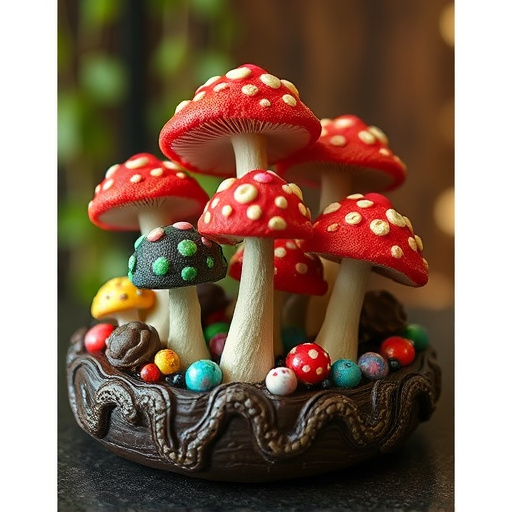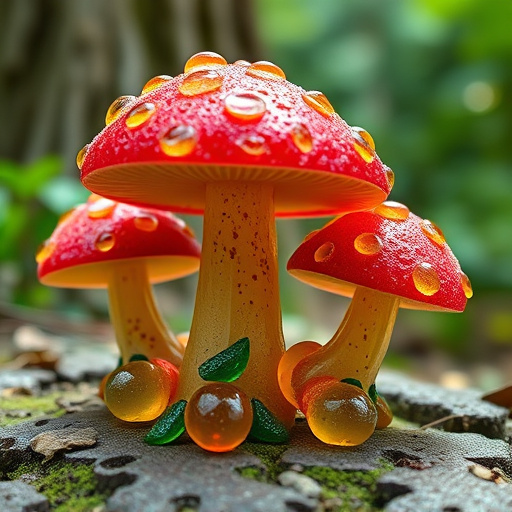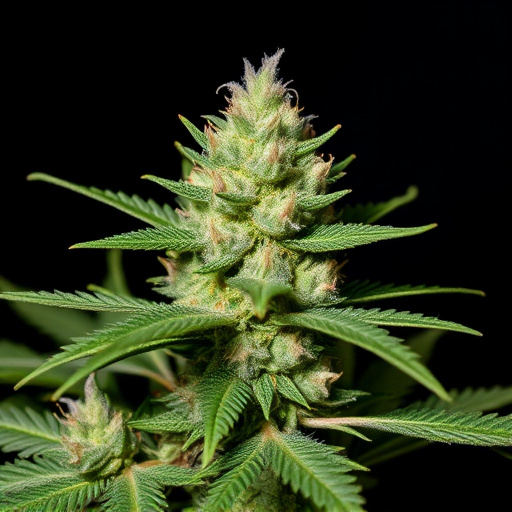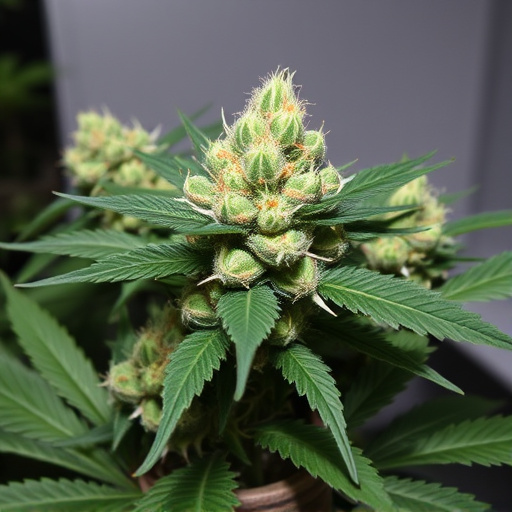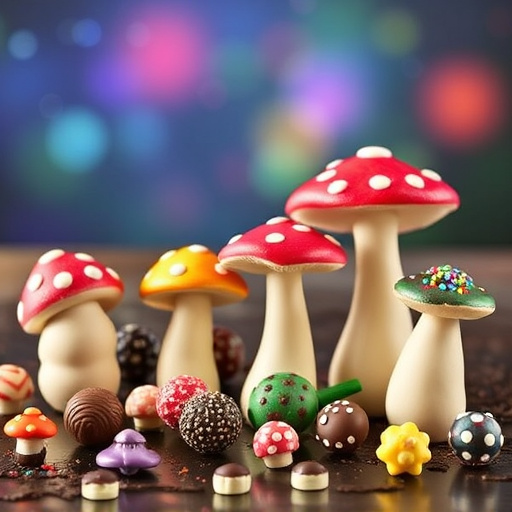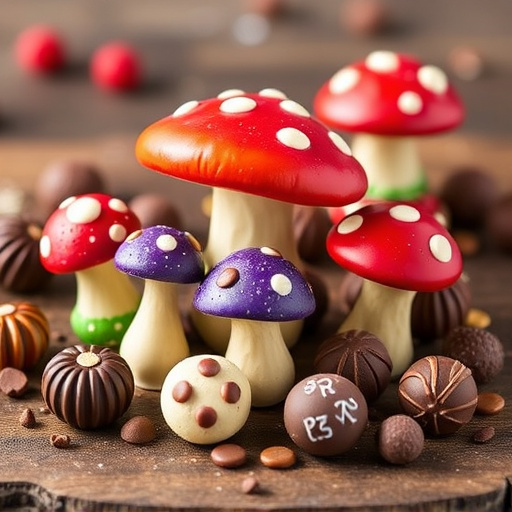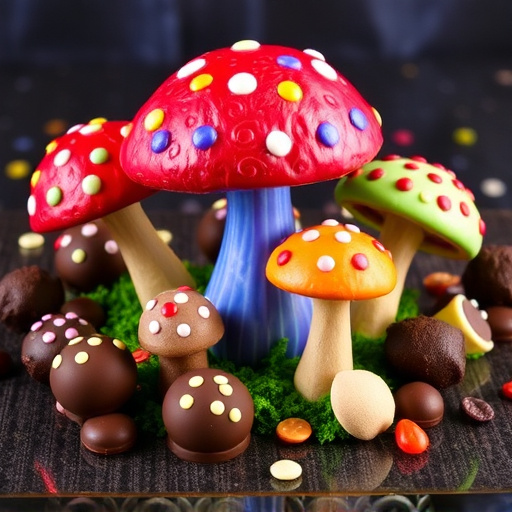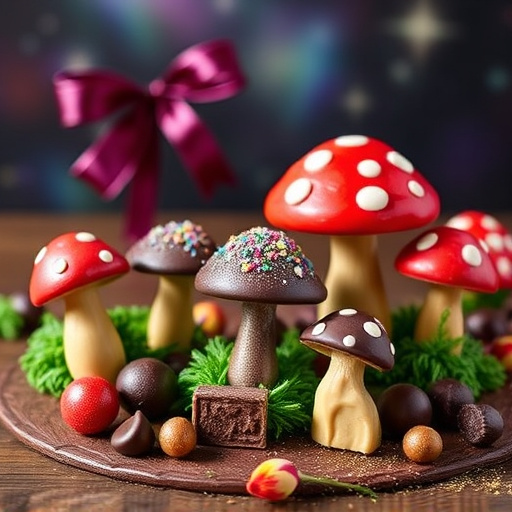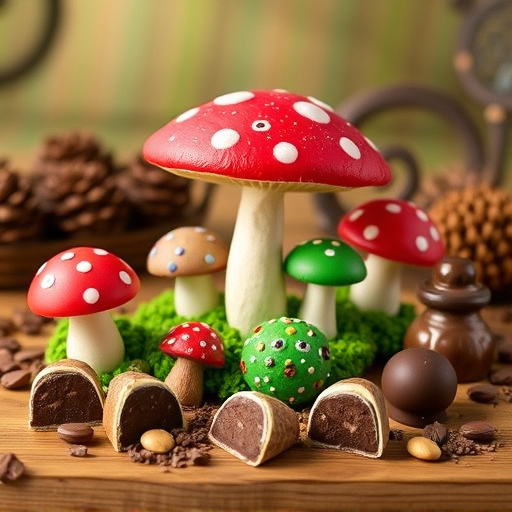Magic mushroom chocolates, rich in psilocybin and psilocin, offer more than just a psychedelic trip. These compounds interact with brain serotonin receptors, temporarily altering neural connectivity across various regions. Enhanced connectivity is linked to mystical experiences, creative insights, and potential mental health benefits. Studies explore the therapeutic value of magic mushroom chocolates, suggesting they could promote neuroplasticity, boost mood, and aid in treatments while providing a delicious sensory journey. The unique interaction with serotonin receptors makes these chocolates a captivating subject in psychopharmacology research focused on Magic Mushroom Chocolates and Neural Connectivity.
Discover the potent effects of magic mushroom chocolates—a delightful fusion of psychedelic compounds and confectionery. This article explores the science behind these unique treats, focusing on psilocybin and psilocin, their interaction with neural receptors, and subsequent impact on brain chemistry. We delve into how magic mushroom chocolates can enhance neural connectivity, promote synaptic plasticity, and offer potential mental health benefits. Additionally, we cover safety guidelines, dosage, and legal aspects to ensure informed consumption.
- The Science Behind Magic Mushroom Chocolates and Their Effects on the Brain
- – Exploring the active compounds in magic mushrooms (psilocybin and psilocin)
- – How these compounds interact with neural receptors and affect brain chemistry
The Science Behind Magic Mushroom Chocolates and Their Effects on the Brain
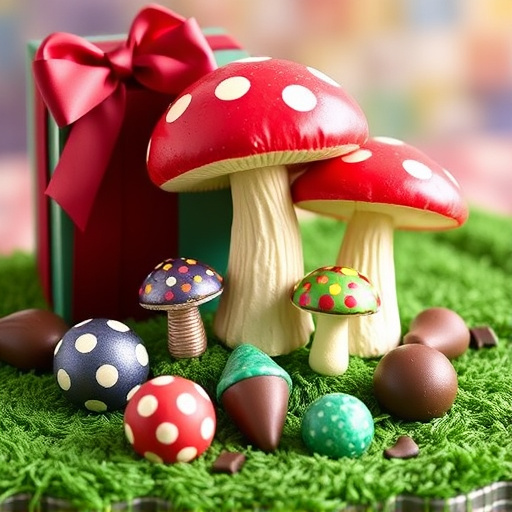
Magic mushroom chocolates, also known as psilocybin chocolate, are gaining attention for their potential therapeutic effects. The active compounds in magic mushrooms, psilocybin and psilocin, are known to interact with our brain’s serotonin receptors, leading to altered states of consciousness. However, recent research delves deeper into the complex interplay between these mushrooms and neural connectivity.
Studies suggest that psilocybin can temporarily alter brain function by increasing connectivity across various regions. This phenomenon is thought to underlie the mystical experiences often reported after consuming magic mushroom chocolates. Enhanced neural connectivity could potentially unlock new perspectives, foster creativity, and even offer insights into mental health conditions. The science behind these chocolates reveals a fascinating glimpse into how they might positively impact our brains, offering not just a pleasurable experience but also potential therapeutic benefits.
– Exploring the active compounds in magic mushrooms (psilocybin and psilocin)
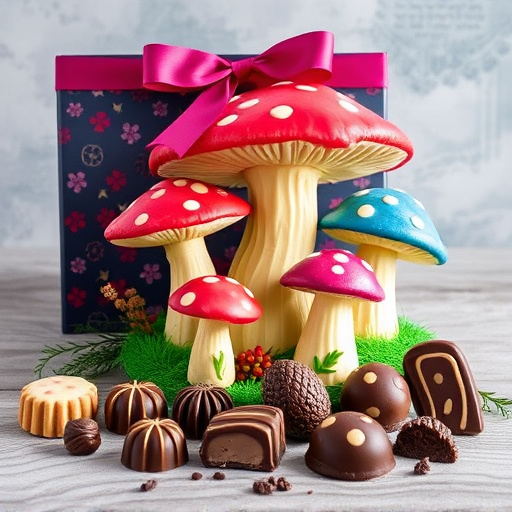
Magic mushrooms, scientifically known for their psilocybin and psilocin compounds, offer more than just a mystical experience. These active ingredients are responsible for the psychedelic effects users often associate with magic mushroom chocolates. Psilocybin, the primary compound, is a powerful serotonergic compound that interacts with our brain’s natural serotonin receptors, leading to altered perceptions and heightened emotional sensitivity.
When consumed as chocolate, these mushrooms don’t just deliver psilocybin; they also provide a unique experience enhanced by the confectionery form. The smooth texture and familiar taste of chocolate can mask some of the more intense effects, making for a more pleasant journey. Moreover, studies are beginning to explore the potential therapeutic benefits of magic mushroom chocolates, suggesting their use could promote neural connectivity, boost mood, and even aid in mental health treatments, all while offering a delicious sensory experience.
– How these compounds interact with neural receptors and affect brain chemistry
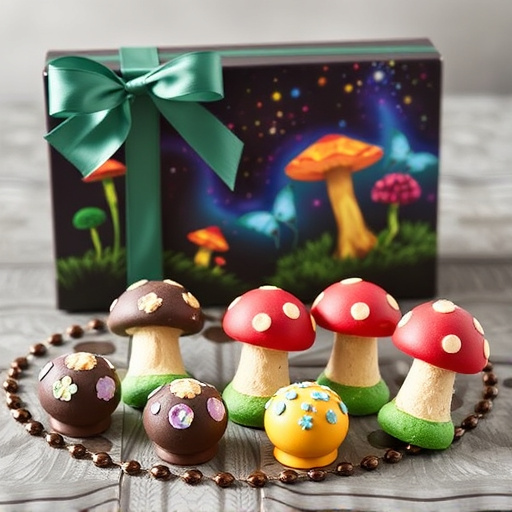
The compounds found in magic mushroom chocolates, primarily psilocybin and psilocin, have a profound effect on neural connectivity. These substances act as partial agonists at serotonin receptors, specifically targeting the 5-HT2A receptors in the brain. When these compounds bind to these receptors, they initiate a cascade of events that lead to altered brain chemistry. The interaction with neural receptors results in the release of neurotransmitters like dopamine and serotonin, which are key players in mood regulation, cognitive functions, and perception.
The effect on neural connectivity is multifaceted. It can enhance communication between different brain regions, leading to increased creativity and a more interconnected mindset. Research suggests that magic mushroom chocolates may also promote neuroplasticity, allowing for the formation of new neural pathways. This interaction with the brain’s complex network can result in profound changes in consciousness, heightened sensory perception, and even spiritual experiences—making it a fascinating area of study within the field of psychopharmacology.
Magic mushroom chocolates, by combining the active compounds of psilocybin and psilocin with the deliciousness of chocolate, offer a unique way to explore neural connectivity. The scientific understanding of these compounds’ interactions with neural receptors reveals their potential to alter brain chemistry and enhance cognitive functions. While further research is needed, initial studies suggest that magic mushroom chocolates could provide a safe and controlled experience for exploring consciousness and improving mental health. As the world of psychedelic research advances, these innovative treats may become a significant tool in navigating the intricate landscape of the mind.
